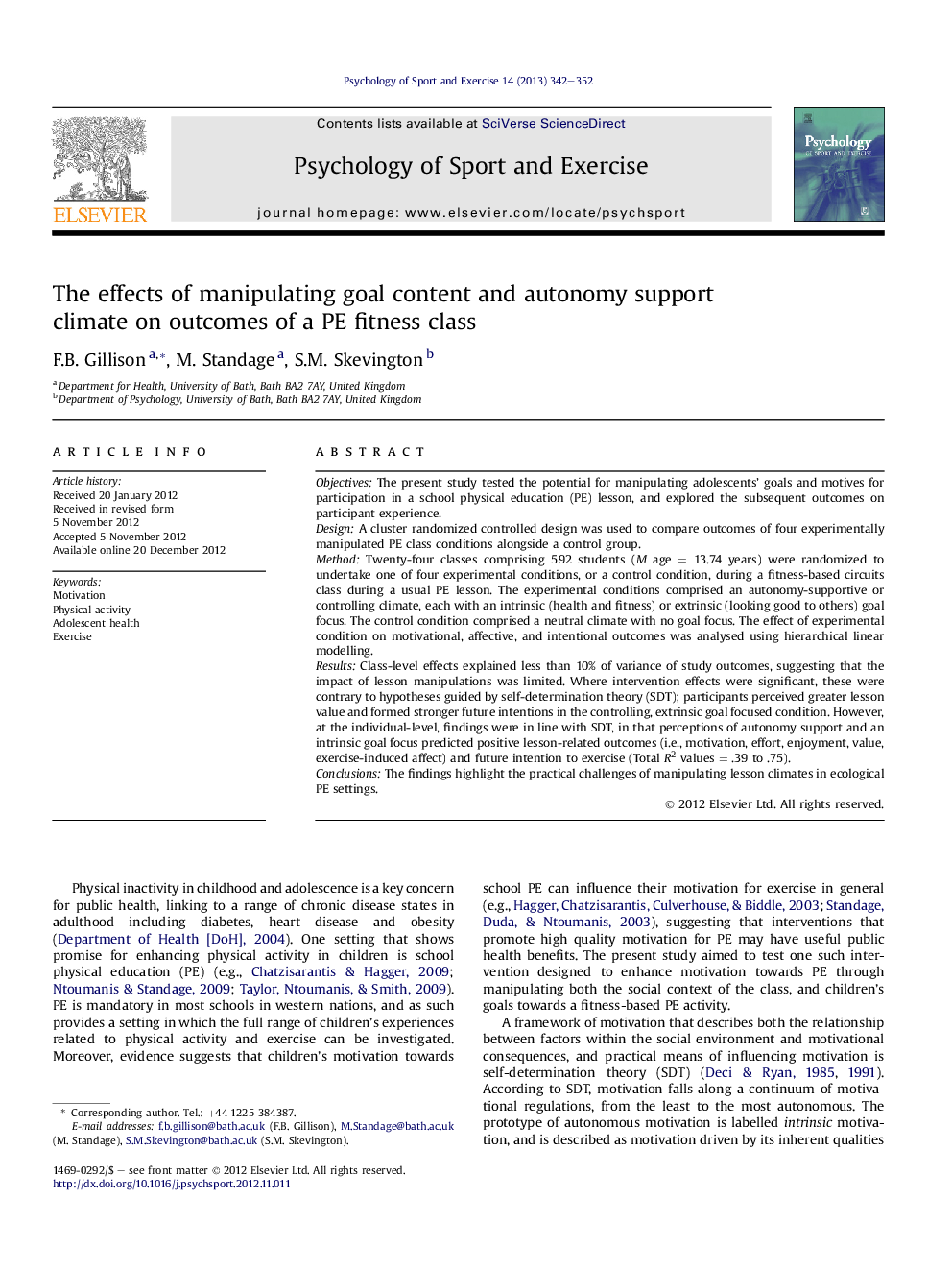| کد مقاله | کد نشریه | سال انتشار | مقاله انگلیسی | نسخه تمام متن |
|---|---|---|---|---|
| 894318 | 1472123 | 2013 | 11 صفحه PDF | دانلود رایگان |

ObjectivesThe present study tested the potential for manipulating adolescents' goals and motives for participation in a school physical education (PE) lesson, and explored the subsequent outcomes on participant experience.DesignA cluster randomized controlled design was used to compare outcomes of four experimentally manipulated PE class conditions alongside a control group.MethodTwenty-four classes comprising 592 students (M age = 13.74 years) were randomized to undertake one of four experimental conditions, or a control condition, during a fitness-based circuits class during a usual PE lesson. The experimental conditions comprised an autonomy-supportive or controlling climate, each with an intrinsic (health and fitness) or extrinsic (looking good to others) goal focus. The control condition comprised a neutral climate with no goal focus. The effect of experimental condition on motivational, affective, and intentional outcomes was analysed using hierarchical linear modelling.ResultsClass-level effects explained less than 10% of variance of study outcomes, suggesting that the impact of lesson manipulations was limited. Where intervention effects were significant, these were contrary to hypotheses guided by self-determination theory (SDT); participants perceived greater lesson value and formed stronger future intentions in the controlling, extrinsic goal focused condition. However, at the individual-level, findings were in line with SDT, in that perceptions of autonomy support and an intrinsic goal focus predicted positive lesson-related outcomes (i.e., motivation, effort, enjoyment, value, exercise-induced affect) and future intention to exercise (Total R2 values = .39 to .75).ConclusionsThe findings highlight the practical challenges of manipulating lesson climates in ecological PE settings.
► Cluster-randomized controlled trial of a school PE intervention.
► Intervention targeting both goal content and autonomy supportive climate.
► Controlling conditions and extrinsic goals promote perceived value and intentions.
► Challenges to manipulating social environments in schools discussed.
Journal: Psychology of Sport and Exercise - Volume 14, Issue 3, May 2013, Pages 342–352